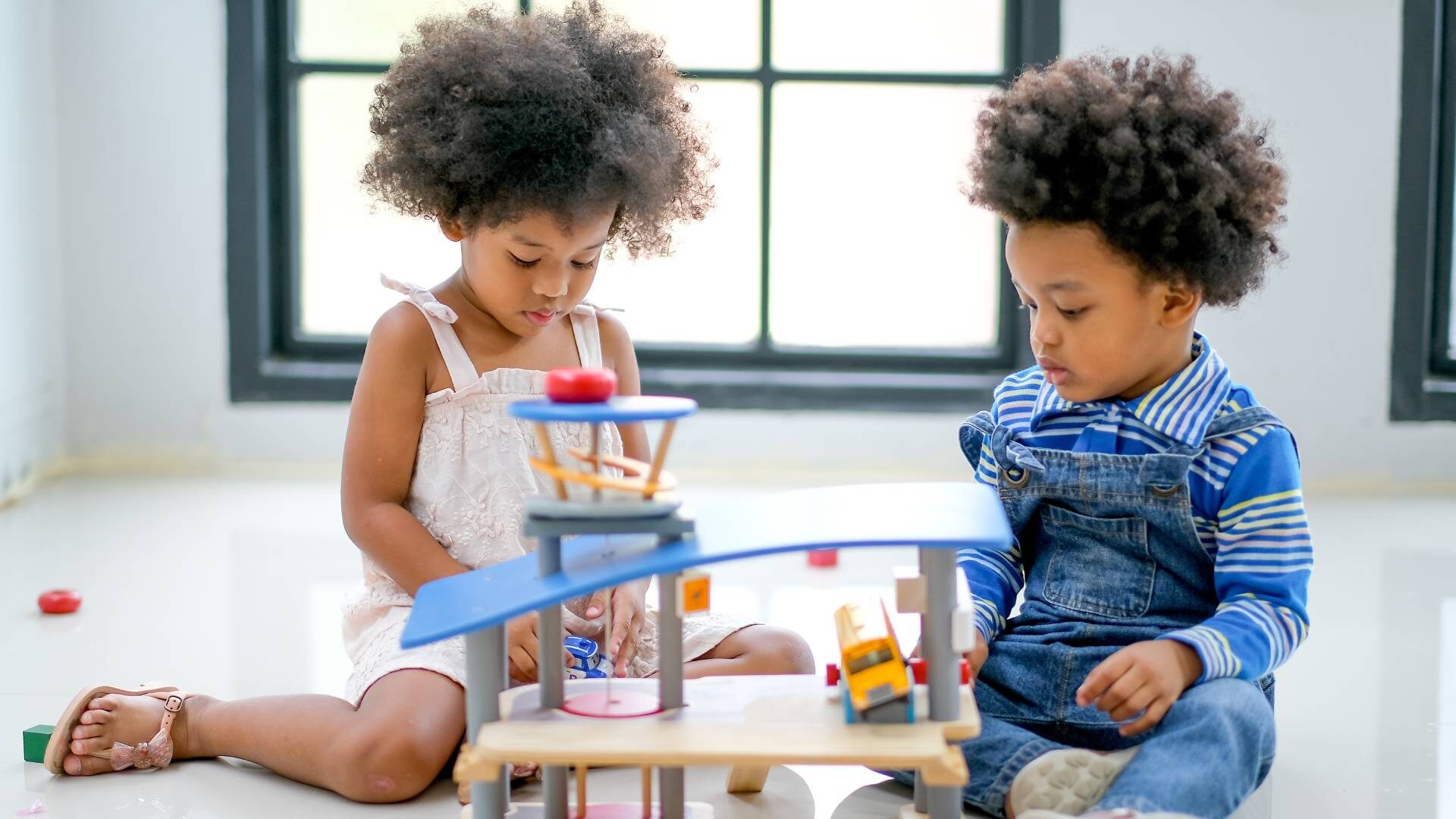Sharing life under one roof does not guarantee that your kids will naturally play nicely together. It often requires parents to foster a harmonious play environment that encourages cooperation, empathy, and fun. Here are 5 strategies for getting your kids to play nicely together.
Make Sure All Have a Say in Play
Every child wants to feel heard and respected, especially during playtime. Encourage your children to discuss and agree upon what games to play so that they consider everyone’s preferences. This democratic approach makes playtime fairer and teaches valuable lessons about compromising and showing each other mutual respect.
Introduce Gender-Neutral Toys to Play Time
Toys play a significant role in children’s play, but sticking exclusively to gender-stereotyped toys can inadvertently limit your kids’ interactions with each other. One of the benefits of playing with gender-neutral toys is that it expands the range of play among siblings, fostering an environment where no one feels left out. This helps children to play without boundaries.
Encourage Them To Be Nice To Each Other
Another strategy for getting your kids to play nicely together is to encourage them to cooperate with one another. Children mimic the behaviors they observe in their environments, making it crucial for you to model and encourage kindness and empathy.
Regularly reminding your children about the importance of being nice to one another, sharing toys, and using kind words can significantly influence how they interact while playing. Reinforcing these values creates a more nurturing and supportive play environment.
Know When To Step Back
While it might be tempting to hover over and constantly oversee your children’s play to ensure harmony, it’s also important to know when to let your children play and interact on their own. This autonomy can help children develop conflict-resolution skills and learn how to cooperate without adult intervention. Trusting them to play nicely can empower them and build confidence in their social abilities.
Praise Them When They Play Well Together
Your words mean a lot to your children. Make a point to acknowledge and praise your children when they play nicely together. This recognition boosts their self-esteem and reinforces the positive behaviors you want to see, making them more likely to repeat them.
Cultivating a play environment where children engage nicely with one another requires consistent effort and patience. These approaches can help you guide your children toward more cooperative and enjoyable playtime experiences.








Leave a Reply